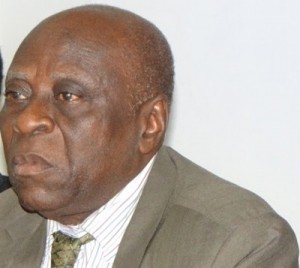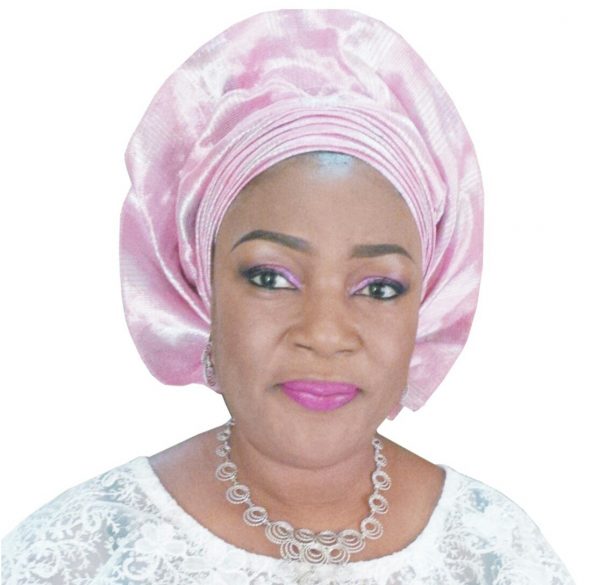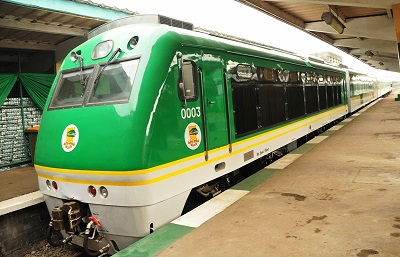How To Resolve Conflicts Among Maritime Agencies- Otunba Folarin

In this interview, the Chairman, Ports Consultative Council (PCC) Otunba Kunle Folarin proffers solutions to conflicts among agencies in the maritime sector especially as a result of the similarities in the functions contained in their establishing acts. He also expounds the potentials of inter-regional trade and gives the roadmap for the development of Nigeria’s transport sector.
Excerpts:
Sir, looking at Nigerian port system; agencies and stakeholders haven’t pitched themselves in a healthy competition, which is required to make the port system better. NPA has said this is something they want to achieve to stakeholders as well as government agencies see themselves in a healthy competition and not a system that brings monopoly. How can we achieve this?
There is no need for competition between the agencies and the stakeholders because the agencies of government such as the Nigerian Ports Authority (NPA), Nigerian Maritime Administration and Safety Agency (NIMASA), Nigerian Shippers Council (NSC), etc., are the regulators of the port operations; while the stakeholders are the providers and the consumers of port services.
The agencies are being grouped as the regulators whereas the stakeholders are the providers and consumers of clearing and forwarding services or any other service in the transportation of goods and services.
If there is a case of conflict in interests or the need to ensure best practices are put in place, then it can only be between the providers and the consumers of port services. There can only be conflict if you have among the regulators performing functions that are to be undertaken by the two or more agencies of government. For example, if Shippers Council is regulating and protecting export and import trade and it’s found to be doing clearing and forwarding then there will be conflict. There could also be conflicts in the Enabling Acts where one agency is having a responsibility and another agency is having similar responsibility like NIMASA and National Inland Waterways Authority (NIWA) in some areas. NIWA is in charge of inland waterways saddled with the primary responsibility to improve and develop Nigeria’s inland waterways for navigation, while NIMASA is in charge of the overall safety and international water territory of Nigeria.
These conflicts can be overcomed but the agencies have to come together to decide where one party’s responsibility should start and where it should stop and where another party’s responsibility should begin.
However, fostering competition is a different thing because completion arises from providing services. The absence of completion leads to monopoly where one party can increase the cost of his or her service to an extent that does not correspond with the quality or quantum of services.
The way Nigerian ports are structured we could have such problems in terms of cargo handling in some ports in the country but fortunately, we have several other ports and multiple companies with the capacity to handle various kinds of cargoes.
Competition cannot thrive if there is rigid restriction for certain cargo to be handled by a particular company. If a company has the capacity to handle both bulk cargo and general cargo, then it should be allowed to do so. If we say vehicle cargo like RORO ought to be handled by a particular company, then we are asking the other companies to look at other cargoes and this would be wrong.
The consumer benefits from the variety because he can compare prices, the quality of services and speed of work and productivity.
What solutions would you proffer to cases of clash in functions among maritime agencies of government?
Firstly, you must understand the fact that the issues which bring about conflict most times among maritime agencies are in their various enabling acts and each party would claim rightfully that such function is in their laws.
The first option is to go to the National Assembly to say we want to domicile this function in Agency ‘A’ and remove it from establishing Acts of Agencies ‘B’ and ‘C’ but this requires the National Assembly to amend the various acts where the conflicts are and it could take years to achieve this.
The second option is inter-ministerial solution because the National Assembly procedures take a long time and it would also have to queue behind the many bills pending. Inter-ministerial solution would be ideal if it cuts across two or more ministries like it does in certain instances. However, most of the issues are between agencies under the Ministry of Transport so it wouldn’t be difficult to reach an agreement to say Agency ‘A’ should continue a particular function to an extent while Agency ‘B’ continues from the point where Agency ‘A’ stopped.
For instance, on issues like wreck removals, we can say Agency ‘A’ should continue to remove the wrecks but Agency ‘B’ should be the custodians of those wrecks so the two parties are doing something. If the issue borders on pollution, you can say when the pollution is within the estuary of the port environment, let it be the responsibility of the NPA; when it happens in the inland waterways, NIWA could handle it while NIMASA should be responsible when it happens outside the ports but within Nigerian territorial waters. All parties should be happy to be involved but the long term solution would be to have a study of the issue and relate it to the international convention and also consider which agency is best equipped for the job.
In 2016, the transport sector made certain achievements in the development of a national carrier, Inland Container Depots (ICDs), railways, etc. How do we develop on these to see it transform the nation’s transport sector?
The issue of multimodal transport is germane to the transformation of Nigeria’s transport system but this responsibility is saddled with the Minister of Transportation, Hon. Rotimi Amaechi. The effort to get technical partners and foreign investors following these agreements is commendable. Apart from the agreements, it is time to begin the actual work process on site so that we could begin to get the value from these projects. At the moment, it is still work in progress.
What are the critical issues that the nation’s transport sector should be looking at achieving in 2017?
It should be straightforward as some projects have been assigned to the Ministry of Works. The railway expansion and modernization, from one gate level to another to create traffic from North to South. This project is achievable and we should be able to put timelines in its development and ensure that we follow it through.
The national carrier issue should also be settled. It should be able to overcome the challenges of getting Nigerian investors to key into the project and retain the confidence of the fore investors in this project.
There should also be a corresponding project that recognizes that the national fleet needs other documents like inland water transport. Inland water transport should be enhanced to serve the social and economic needs of Nigerians. People should be able to travel from Warri to Lokoja via the waterways but we need to develop the system and also create an enabling environment that would encourage local investor to key in water transportation. There should be an environment that promotes trade and encourages social interaction.
When we develop the nation’s railway and water transport system, then we are actually delivering on the core policies of National Transport Policy and the core areas of transport. Inter-city water transportation would develop the economy of the states due to the trade via a less cumbersome medium of transport when compare to the road transport or air transport.
This is very critical because it contributes to the development of small scale enterprises. Every country develops as a result of optimum small scale efforts that develop into medium and large scale enterprises.
Ferry services can transport people from one state to another and it does not require large vessels. This also brings a lot of social benefits for people at the rural level in trades. You can transport your palm-kernel products via waterways from Lokoja to Delta and when there are commodities like fishes in Delta state, you can also transport back to the North.
This reminds us of the Sea-Link Project to promote coastal trade among African countries. After one decade, the project never materialized. What are the potentials of such Sea-Link projects?
Inter-regional trade / Inter-state trade are the keys needed for balance by payment issues. Most countries in the West African region trading with Europe would never be able to attain a net-net trading equation. You either importing too much from those countries or exporting too less to them.
However, within African countries we can easily identify those things that are being manufactured or at the level of secondary level of production and exchange these goods and services among ourselves. The protocol had been signed many years ago between countries in the Economic Community of West African States (ECOWAS) but the major issues has been transportation as well as bureaucracy of Customs along the borders. It should also create an option in the mode of transport to be utilized.
The issue of inter-regional trade is key to the development of the region and it saves Africa a lot of money in terms of transportation, the forex challenges would be much lower because you wouldn’t need dollars to freight among African nations. It also helps in the empowerment and employment of those within that region.
By Kenneth Jukpor








